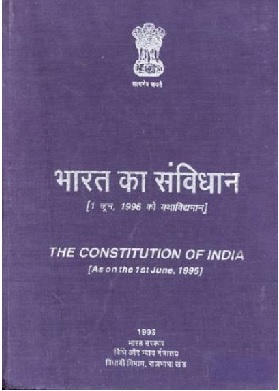Indian Polity - Introduction
The constitution of a country is a document that comprises a set of written rules accepted by everyone living together in that country.
The Constitution of a country is the supreme law of the land and it determines the relationship among people living in that country and also regulates the government and its policies towards its citizens.

Role of Constitution
A constitution serves a lot of purpose; its major roles are as follows −
It describes rules and regulations that generate a degree of trust and coordination among the people of different strata of a society who live together;
It provides a framework within which the government and other institutions work in the country;
It lays down the procedure as to how the government will be constituted and the manner in which decisions are taken;
It defines the powers, duties, and limits of the respective government.
It also tells the rights of the citizens and defines the rule of law and a procedure to protect them.
All the democratic countries have their own constitutions. But having a full-fledged constitution in a country is not a guarantee for it to be truly democratic.
The Americans gave themselves a constitution after the War of Independence against the Great Britain in 1787.
Similarly, the French people approved a democratic constitution after the Revolution, i.e., first in 1791 and recently in 1958. Since then, it has become a practice in all democracies to have a written constitution.
A compilation of basic rules is called a constitution, and these rules are comprehensive that define −
the powers of the elected governments to do things;
the limitations for not to do certain things;
fundament rights of the citizen; and
how the rulers are to be chosen in future.
